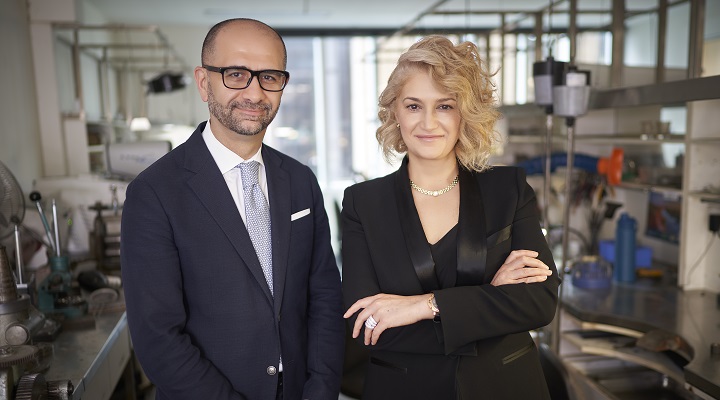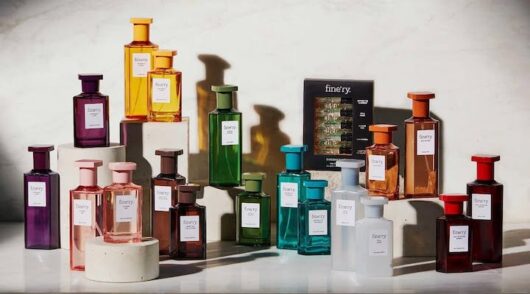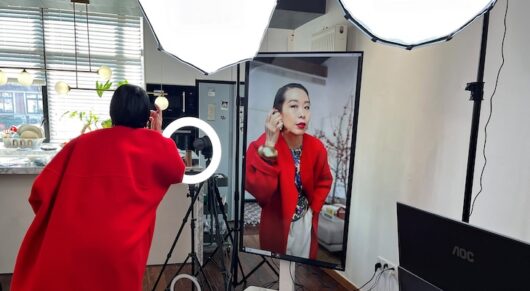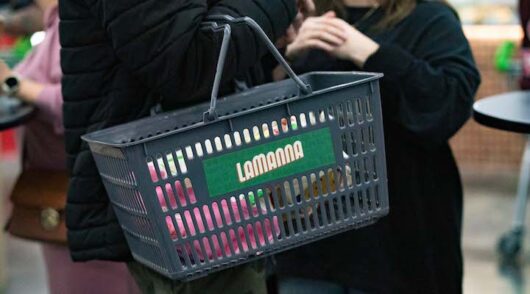The heritage of Sydney-based fine jewellery business Gregory Jewellers dates back to the 1940s, when brothers Lahdo and Christopher Gregory, and their uncles Isak and Abraham Gregory, became apprentices to the master jewellers of Midyat, a small Turkish town famed for its silver filigree handicraft. Fast forward 80 years, and the descendants of Lahdo and Christopher, cousins Helen and Edward Gregory, now lead the family business in Australia. With 15 boutiques across Sydney and Melbourne, Gregor
gory Jewellers has firmly established itself as a leading fine jewellery retailer.
Here, we speak with the co-CEOs about the rise of online shopping during Covid-19 and where they’re looking to take the retail chain next.
Inside Retail: What has the last year and a half been like for Gregory Jewellers and what steps have you taken to keep the business going?
Edward Gregory: The last year and a half for Gregory Jewellers has been characterised by great successes and great challenges. The closure of our retail network due to lockdowns and the effect of this on our business has been really difficult. We are luxury retailers and pride ourselves on giving our clients access to the finest jewellery and premium watches. To have our boutique network closed has been challenging, we have really missed the interaction with our clients in-store. Jewellery and watch purchases are often driven by emotion – to tangibly hold and engage with a desired item is very important in our particular customer journey.
Helen Gregory: We have used Covid as an opportunity to innovate. Last year during lockdown we finished the build of our new website with Frank Digital and WP Engine. Our luxury website has proved to be an amazing tool in giving our products visibility to new and existing clients all across Australia. Our webchat and enquiry tools have proved very advantageous in being able to connect with clients in real time and give them the information they require quickly and personally. There are real specialists engaging with all our enquiries, and our clients have responded positively to this high level of personalised service. We have also been rolling out virtual consultations across our network; the take-up of these appointments has been fantastic and they have been real drivers for conversion of new and existing leads. During Covid, we have also consolidated our omnichannel marketing strategy. It is important as a retailer representing many brands that we have this ‘always on’ approach.
IR: Were you surprised by the number of people that shifted to buying fine jewellery online? If so, what did you think the barriers might be, and how did you overcome them?
HG: Yes, we have been pleasantly surprised in the shift to purchase fine jewellery online. Many market analysts have stated that Covid propelled Australian retail five years into the future, and the appetite for beautiful things is always present. We have always had the attitude that we want our website to mirror the premium customer experience our physical boutiques are known for. Our website is a luxurious, customer-led experience and it speaks to our brand DNA.
We always attempt to style jewellery that appeals to different audiences. We ensure our website speaks to the wearability of items in a contemporary, accessible way. We are currently looking at tech integration which will enhance this experience even further…stay tuned!
IR: Can you describe how you’ve translated the in-store customer experience online?
HG: We provide the best customer experience online. We respond to enquiries in real time using real specialists, we try to make customers confident in their purchasing experience by guiding them through every step of the process and we use insured airlock courier services across Australia to ensure items are secure and delivery is expedited. We also connect with clients to ensure they have received their order and are enjoying their purchase and to provide after sales care, such as talking them through how to use or operate timepieces, warranty activations, repairs and insurance advice.
This lockdown we have facilitated engagement ring and high-complication watch sales. People are comfortable purchasing these items online if they find the right experience for their wants and needs. Where we have succeeded is by not reinventing the wheel; our e-commerce experience at the end of the day is personalised, intelligent and attentive…it is what we have offered in-store for decades!
IR: Looking ahead, what are some of the big opportunities you see for growing the Gregory Jewellers brand?
EG: Expansion is on the cards – there are many markets within Australia and some in the Asia Pacific that greatly interest us. We will continue to see how we can grow e-commerce through new audiences, technology and affiliate channels.
IR: Are there any potential challenges or areas of concern that could impact your business?
EG: Lockdowns and the closure of state borders have been problematic for our business. Of course, we speak to our team members in Victoria virtually, but it is not the same as personal interaction. Overseas importation into Australia has also been an issue for us in the space of diamonds, branded jewellery and luxury watches. There is currently scarcity in the supply of rough diamonds, as mines are taking time to come to full production following lockdowns and manufacturers are holding smaller inventories. This is having a huge effect on our ability to acquire the diamonds our business currently needs.
IR: There’s been a lot of talk recently about the rise of ‘shop local’ since the pandemic. As a family business that manufactures in Australia, have you noticed this?
EG: We definitely think that consumers have been looking inward during the pandemic. When lockdown lifted in Melbourne, our boutiques were flooded with clients who wished to show their support. I think people are genuinely worried that if they don’t support bricks-and-mortar retail, it will disappear.
HG: There is also a consumer conscience that has developed during Covid, particularly from youth markets. These markets understand that if economies are to be sustainable, goods must be created in local markets to provide jobs, reduce environmental footprints and so on. Consumers are finally connecting and appreciating the value and importance of ‘Australian made’.







